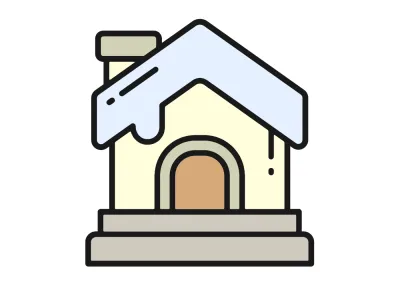Why get a furnace or boiler tune-up? Let us break it down for you.
February 14, 2019

Why It’s Important to Get Your Heat Source Serviced
During these cold winter months, consumers not only need to think about paying the bills, but making sure their heat-source keeps up with the cold temperatures. In general, there are three common ways to heat your home from a central heat source. They are as follows: furnace (also known as forced air), boiler, and heat-pump technology. Regardless of which heat source your home uses, you are going to want to get a tune-up once a year. According to the United States Department of Energy, “Proper maintenance by a qualified technician is one of the most important steps you can take to prevent future problems.” This blog will explain why we you need an annual tune-up and help you prepare for it.
Furnace and Boiler Tune-up
There are lots of reasons why to get a boiler or furnace tune-up:
- More Reliable Heat. When you get a tune-up, your technician will inspect and clean parts of your furnace or boiler. This will maximize the lifespan of your system and ensure it will run consistently throughout the cold months. This preventative maintenance may help you avoid more costly, emergency repairs or replacement of your heating system.
- Save money. There aren’t clear numbers as to how much the average tune-up saves. However, a tune-up will clean up your heat source and lubricate necessary parts making it run more efficiently, and heat your home for less money.
- Cleaner, safer air. A tune-up also ensures your heating equipment is running properly and is not releasing carbon monoxide into your home.
- Gain control over your comfort. A tune-up will verify and recalibrate your thermostat to make sure it is accurate.
- Opportunity to learn. A tune-up is an opportunity to ask your HVAC technician questions and learn more about your heating system. This is a great time to learn how to operate your programmable or smart thermostat!
- In general, you should make sure you regularly change the air filter in your furnace or heat pump. The number of times a filter should be changed depends on a lot of factors. However, the best way to tell is to use your judgement. If you check your filter and you see there is more than a layer of dust on it, you should probably change it. It is recommended to change filters more frequently for those who have household members that struggle with allergies.
- Before you schedule a tune-up, make sure your contractor has the proper HVAC credentials. To look up a potential HVAC technician, use the Department of Commerce’s License Lookup resource online.
- Look for rebates. Many utilities providers have rebates or tune-up plans at a discounted price available to customers.
- Ask your friends! If your neighbor has a technician they like working with, that can be a good place for you to start your search for a technician.
- If you want a more exhaustive list of what to do before scheduling a tune-up, read this guide by Energy Star.